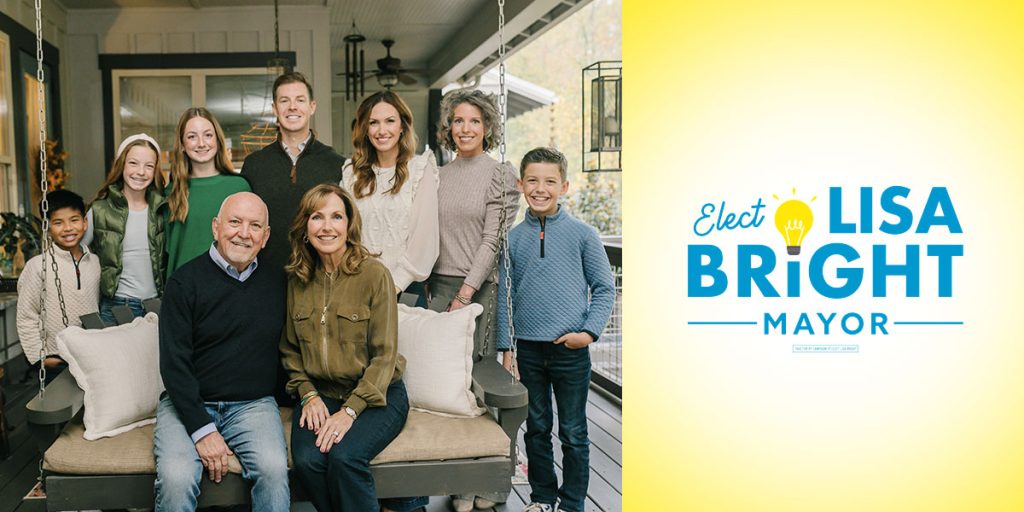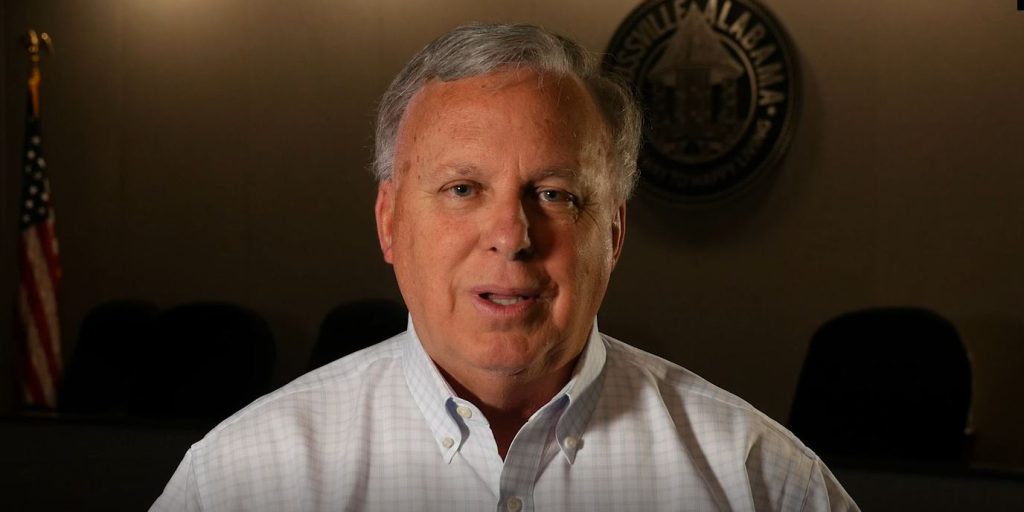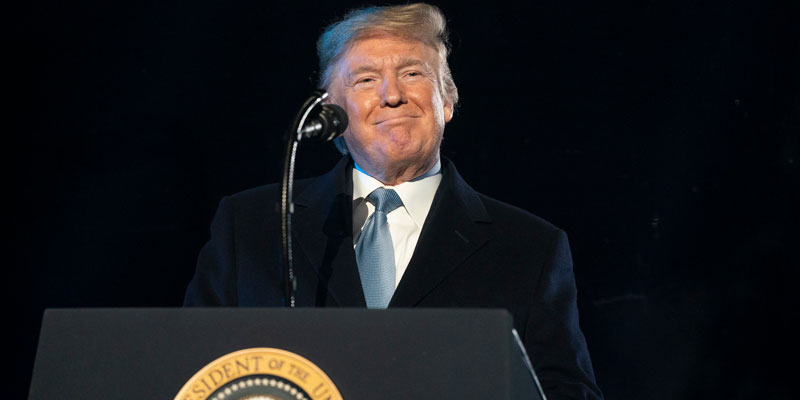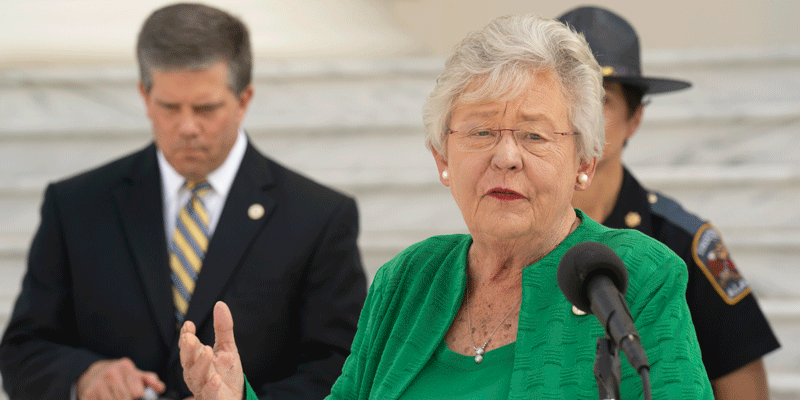TRUSSVILLE — Yellowhammer Multimedia on Tuesday held its sixth News Shapers event of 2019, with Congressman Gary Palmer (AL-06) making a special guest appearance.
The event, held at the Trussville Civic Center, featured a panel discussion focused on small businesses in Alabama.
About 35 minutes into the forum, Palmer joined the panelists in the front of the room to discuss issues affecting economic growth and jobs in the Yellowhammer State.
The congressman, who is currently the fifth-highest ranking Republican in the U.S. House of Representatives as chair of the Republican Policy Committee, also commented on matters of the day and ways his fellow party members could govern more conservatively.
However, to open his remarks, he explained what conservatives have done especially well since President Donald Trump took office.
“What the Trump administration has done … the thing that really got the economy growing was not the Tax Cuts and Jobs Act (the Trump tax cuts of 2017) — that accelerated the growth — but what got it starting was the first 14 bills that we passed in the 115th Congress: broad Congressional Review Act bills that rolled back Obama administration proposed regulations that were really hamstringing the economy,” Palmer advised.
Palmer detailed that a Gallup report had shown there were 100,000 more businesses opening than closing in 2008, compared to 70,000 more closing than opening in 2014.
“The primary reason [for that] was regulation,” he remarked.
Palmer then made several series of remarks on the federal tax code — including the Tax Cuts and Jobs Act of 2017.
He explained that he was part of the working group on this historic piece of legislation.
“I kept making the point that (tax) rates are important, but they’re not the most important,” Palmer said. “Businesses are not tax averse, they’re not regulation averse. What they’re averse to is a lack of predictability. Business does not like operating in an unpredictable environment — there’s enough risk already without adding to that additional risk from not knowing what the regulation is or not knowing what the tax laws are.”
“The thing that I pointed out to my colleagues and to Jared Kushner is that money is like water,” he continued. “It will always seek the path of least resistance. So, if you want your economy to grow, you’ve got to create a predictable environment. It doesn’t mean that you’re totally unregulated. It doesn’t mean that you go without paying taxes. It means that you operate in an environment where you know what the regulations are, you know what the taxes are and you can make the decisions about how to invest your capital.”
Palmer then added, “I think we’re seeing the benefits of that.”
Transitioning into reforms to federal commercial driver’s license (CDL) law, Palmer commented, “We’re moving toward that in Congress. Having the Democrats impeach the president I think will give us some other stuff [that we are preoccupied with].”
After chuckles from the crowd, Palmer added, “We kind of joke about it, but we’re really in the midst of something we’ve never seen before.”
“As I described it today, it’s a bloodless coup that’s taking place,” he emphasized.
Later during the discussion, Palmer described the gap between what the IRS believes it should be collecting in taxes annually and what it actually does. This gap, he said, is over $400 billion.
“It’s going up every year,” Palmer lamented.
Over a 10-year window, not even considering interest on the added debt the country is taking on by not collecting that money, the gap comes to well over four trillion dollars.
Palmer told the crowd that he believes the United States should adopt a consumption tax in lieu of the current federal tax code to simplify things and reduce the collection gap.
He added that this would be “the best thing that we can do for the economy.”
This would be along the lines of the “FairTax,” which has been proposed for years in Congress with no meaningful traction towards passage.
Palmer said “a simplified average tax” would also be better than the current code, which is far too complex, in his opinion.
He reiterated this would increase the predictability factor that he harped on earlier, while also putting more money back into the economy in capital investments.
Palmer subsequently commented further on the Tax Cuts and Jobs Act of 2017.
“Congress should stop passing these huge, comprehensive bills, because inevitably we screw something up,” he said. “And we did in this one.”
Palmer added that they almost messed something up that was a crucial priority of the National Federation of Independent Business (NFIB) regarding pass-through entities, too.
“We almost did [screw something up] with the NFIB, but we did with the restaurants on the deprecation — that’s really hurt them,” Palmer stressed, saying he has made this same argument on other major legislative issues such as healthcare.
He said these “huge” legislative efforts need to be done in phases rather than all at once.
One other issue Palmer touched on was the growing national debt.
He lamented that the federal government is set to have a deficit of over one trillion dollars this fiscal year alone.
Admitting he was “getting in the weeds,” Palmer then described a plan to get to a healthy level of debt again instead of the increasing hole of over 22 trillion dollars that America currently faces.
“We’re right now at 80% debt to GDP — that means that our debt is 80% of what our whole economy is,” he outlined. “In 25-30 years, it’s going to be 150%… To get back down to a manageable level, and government’s always going to have debt… it needs to be in the 40-50% range. To get there, we need about seven trillion dollars.”
Palmer mentioned the tax collection gap he previously outlined as a way to eat into this target of seven trillion dollars.
He then added eliminating improper government payouts as a $1.6 trillion savings over 10 years.
Finally, he mentioned a bill he filed earlier this year that would require unappropriated funds collected by federal agencies to be transferred to the U.S. Treasury and subject to the congressional appropriations process.
This would mean fines and fees levied and collected by agencies could not simply be swallowed up and spent by these agencies without Congress accounting for the money and having a say so. Palmer believes this could mean huge annual savings in tax dollars.
“So, there’s a way to get us back to where we need to be on our debt to GDP [ratio],” Palmer summarized.
On a final note, Palmer said the permitting process, especially for infrastructure construction, needs to be seriously sped up and streamlined.
He stated that this was a huge problem right now with the Northern Beltline Project in Jefferson County.
“The Northern Beltline is the key not just to Birmingham but for the whole region — maybe even the whole state — in terms of our future economic development and in terms of keeping us from becoming like Atlanta or Nashville, where our economic development overwhelms our infrastructure,” Palmer advised. “They’re predicting that it will be finished by 2054.”
“And the president’s really big on this part,” he continued. “He wants to reduce permitting time to no more than 18 months.”
Palmer says this plays into the predictability factor he mentioned earlier in his remarks.
“That’s the kind of stuff that’s really holding us back,” he concluded. “The economy would take off again if we took care of those things.”
Sean Ross is the editor of Yellowhammer News. You can follow him on Twitter @sean_yhn













